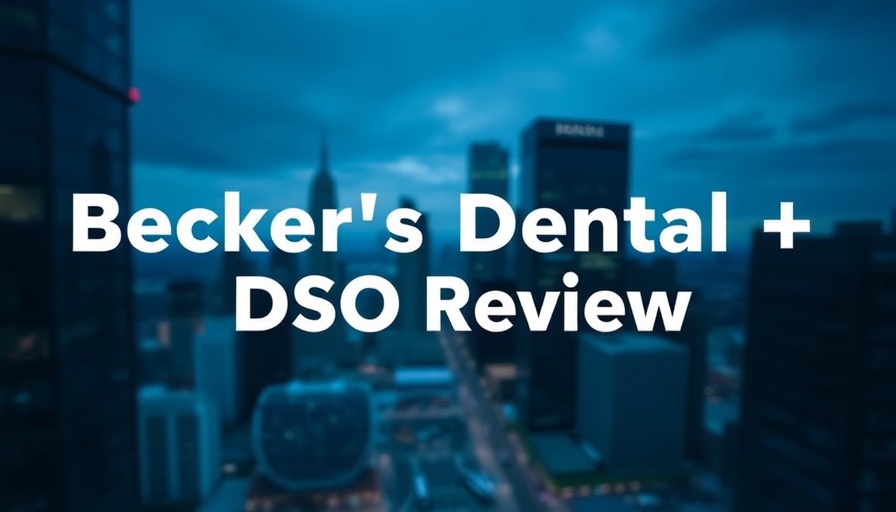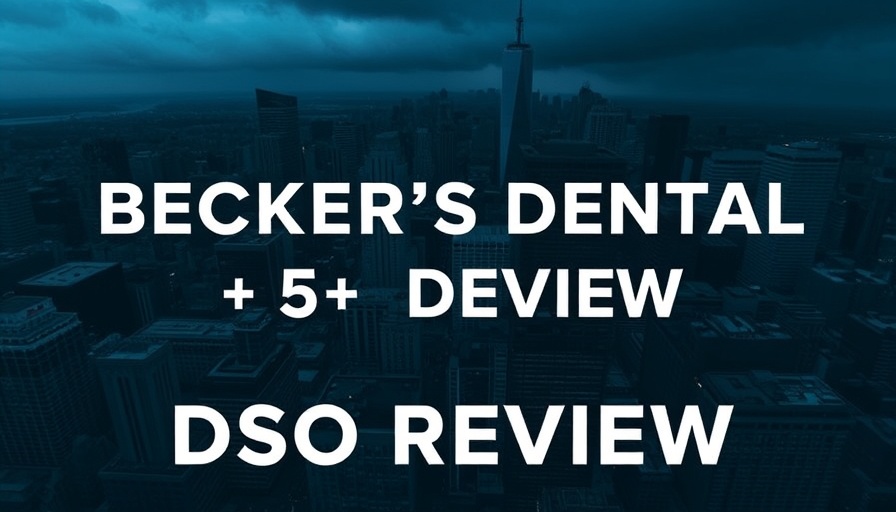
Recent Surge in Dental Data Breaches: A Call for Vigilance
The dental industry has witnessed a spate of alarming data breaches in the last ten days, putting both practitioners and patients on high alert. These incidents not only threaten the integrity of sensitive patient information but also highlight vulnerabilities in the systems that dental practices rely on. Understanding the implications of these breaches is crucial for dental professionals like Dr. Emily Johnson, who must navigate the complex landscape of patient trust and data security.
Four Breaches: A Disturbing Trend
Since August 8, four significant data breaches have been reported:
- Dr. Doug’s Pediatric Dentistry in Logan, Utah, reported a data security incident on August 14. Details regarding the breach are sparse, but notifications indicate potential exposure of patient data.
- Precision Endodontics in Raleigh, North Carolina, suffered an email breach leading to the exposure of certain patient information. Email breaches are particularly concerning as they may facilitate unauthorized access to a wealth of sensitive information.
- West Texas Oral Facial Surgery faced a data breach impacting over 11,000 individuals. This breach underscores the scale at which data can be compromised, raising questions about the effectiveness of current data protection strategies.
- 32 Pearls, with practices in Seattle and University Place, Washington, experienced a breach affecting approximately 23,517 individuals. The sheer number of patients potentially impacted prompts urgency in reviewing data security frameworks within dental practices.
Historical Context and Background: Understanding the Risks
While data breaches are not new to the healthcare sector, the frequency and scale at which they are occurring in dentistry may be indicative of deeper systemic issues. Historically, smaller practices like Dr. Johnson's may not have prioritized data security, often underestimating the risks associated with technology. As healthcare becomes increasingly digitized, understanding and addressing these vulnerabilities is essential for maintaining patient trust.
How These Breaches Affect Patient Trust and Practice Growth
For dental practices, patient trust is paramount. Statistics from recent surveys indicate that 70% of patients are likely to stop visiting a practice following a data breach. This trust can be difficult to restore once compromised. Dr. Johnson, operating her solo-owned practice, must be acutely aware that such incidents could not only affect her reputation but also hinder growth. Implementing robust cybersecurity measures can serve as a competitive advantage in an increasingly digital landscape.
Future Predictions: The Consequences of Inaction
If current trends continue, we may see an escalation in cyberattacks targeting the healthcare sector, including dental practices. Failure to adopt effective cybersecurity strategies could lead not only to reputational damage but also to legal ramifications and hefty fines under regulations such as HIPAA. Investing in next-generation security technologies, conducting regular audits, and training staff on best practices can help mitigate these risks.
Actions Dentists Can Take to Protect Their Practices
For dental professionals, this alarming trend serves as a wake-up call. Here are several actionable insights to bolster data security:
- Conduct regular security audits to identify vulnerabilities.
- Train staff in cybersecurity practices, emphasizing the risks associated with email breaches.
- Implement multi-factor authentication (MFA) to safeguard sensitive patient information.
- Utilize reputable and secure practice management software, ensuring it complies with data security regulations.
The Importance of Vigilance and Community Engagement
For professionals like Dr. Johnson, being involved in the community can enhance trust. Transparency about data security measures and the proactive steps taken can reassure patients that their sensitive information is protected. Engaging with local officials and healthcare organizations to advocate for stronger cybersecurity support can also foster a more secure environment for patient data.
Conclusion: A Call to Action for Dental Practices
The recent surge in dental data breaches should prompt immediate action from dental professionals to enhance data security measures. As the digital landscape evolves, so must our strategies for protecting sensitive patient information. It is essential for practices to remain vigilant and implement appropriate safeguards to maintain trust and protect patient data. In a world where data breaches can have devastating effects, being proactive can not only save a practice's reputation but ultimately keep patients safe.
 Add Row
Add Row  Add
Add 




Write A Comment